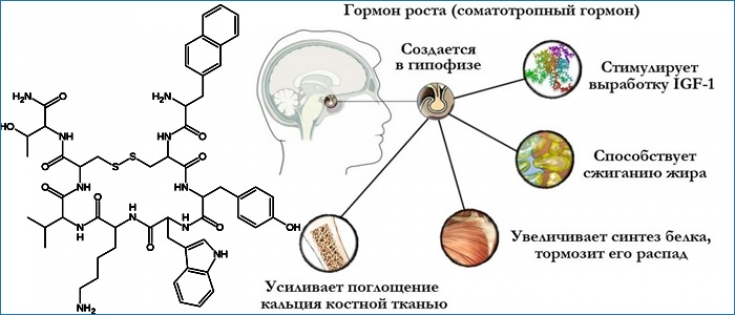Why does a person age? This question cannot be answered unequivocally, because age-related changes occur under the influence of a huge number of factors, ranging from genetic predisposition and lifestyle, to environmental situation.
However, the state of the endocrine system is one of the most important factors determining the rate of onset of age-related changes.
On estet-portal.com, read which hormones have the greatest influence on aging processes, as well as how to prevent premature aging with hormone therapy.
The role of hormonal changes in the aging of the body
There are a huge number of theories of aging, more than 300 according to Medvedev. But it must be said that none of these theories has so far answered two eternal human questions: why do we age, and how to avoid it.
The neuroendocrine theory of aging suggests that dysregulation of the endocrine system plays a major role in chronoaging.
It is believed that the decrease in the synthesis of such hormones as:
contributes to the acceleration of the withering processes• melatonin;
• growth hormone;
• dehydroepiandrosterone;
• progesterone;
• testosterone;
• estrogens.
This is why anti-aging hormone therapy was once called the "fountain of youth".

Hormonal insufficiency: is it always bad
Indeed, endocrine diseases have serious negative consequences for the appearance of a person, which manifest themselves both in the face and in the whole body – breaking his silhouette. Thus, if a person has endocrine system disorders, he will most likely look inharmonious.
However, it is important to understand that not all hormones have exactly anti-aging effects and can be used to combat aging.
Of course, hormones have a huge impact on the human body, but an increase in the level of most of them can, just like a hormone deficiency, have negative consequences.
Follow us on Telegram!
Somatotropin: the effect of growth hormone on body aging
Many researchers describe a decrease in growth hormone levels with age, which is accompanied by sarcopenia and osteoporosis.
In the 1990s, it was believed that the use of growth hormone would slow down any age-related changes.
The main beneficial effects of HGH include:
• increased protein synthesis;
• activation of fatty acid oxidation;
• Improve calcium absorption;
• activation of bone tissue growth.
This hormone would be an ideal candidate for anti-aging, if not for the side effects that occur when its concentration is increased. These include hyperthyroidism, diseases of the cardiovascular system, diabetes, impotence, osteoporosis, and so on. Therefore, based on the foregoing, we conclude that growth hormone cannot be used for anti-aging therapy.
Below normal: what is growth hormone responsible for in the body
Why not all hormones can be used to prevent aging
Also, with age, there is a decrease in dehydroepiandrosterone, as a result of which excess weight accumulates, immunity decreases, and an increased risk of diseases of the cardiovascular system.
This hormone has been prescribed for some time as a dietary supplement to prevent age-related changes, but it has been found to contribute to genital neoplasia, especially in overweight menopausal women. Therefore, dehydroepiandrosterone also cannot be considered the "hormone of youth."
Estrogens and melatonin have a real anti-aging effect, according to modern scientific data.
For more details about which, read: Melatonin - the hormone of sound sleep and the key to youth







Add a comment